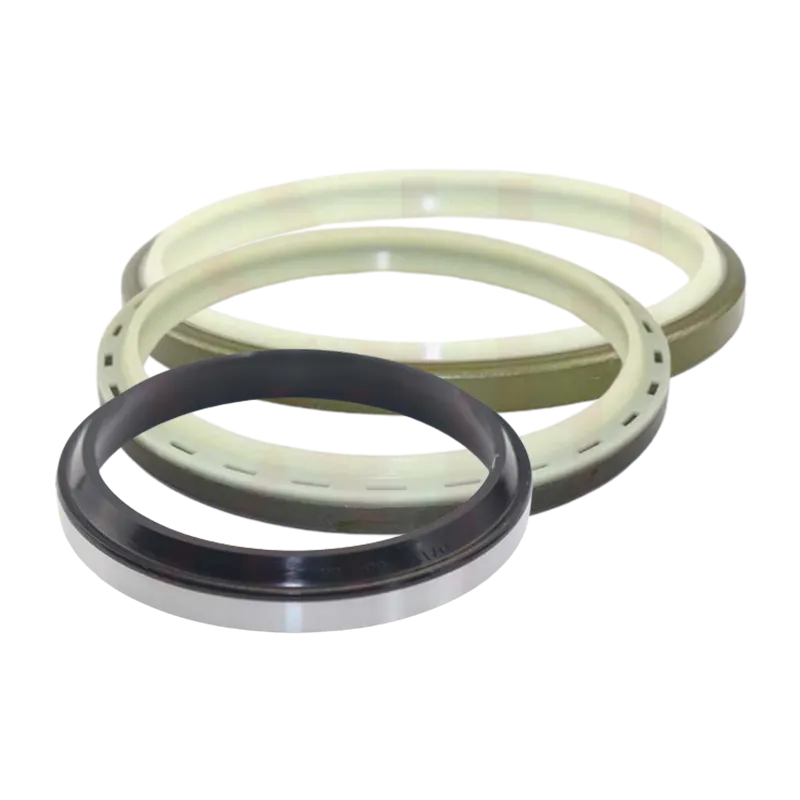Dec . 02, 2024 02:06 Back to list
Excavator Seal Solutions for Enhanced Performance and Durability in Heavy Machinery
Understanding Excavator Seals Importance, Types, and Maintenance
Excavators are vital machines used in construction, mining, and various earth-moving operations. They are designed with complex systems that facilitate their function, and one of the most crucial components in ensuring their efficiency and longevity is the seal. Excavator seals play a significant role in preventing leakage, protecting internal components, and maintaining performance. This article will delve into the importance of excavator seals, the types available, and best practices for maintenance.
The Importance of Excavator Seals
Excavator seals are essential for several reasons. Primarily, they prevent hydraulic fluid and other lubricants from leaking. This leakage can lead to decreased efficiency and operational performance, as well as increased wear and tear on mechanical parts. A minor leak may seem insignificant, but over time it can result in major malfunctions, costly repairs, and unexpected downtime, which can hinder project timelines and budget.
Moreover, seals protect the internal components from dirt, debris, and contaminants. Excavators often operate in challenging environments, and without proper sealing, foreign particles can enter the hydraulic system, causing wear and potentially catastrophic failures. Thus, the correct installation and maintenance of seals are critical for maximizing the machine's lifespan.
Types of Excavator Seals
There are several types of seals used in excavators, each designed for specific functions and applications
. The most common types include1. Hydraulic Seals These are used to prevent fluid leaks in hydraulic cylinders. They are typically made from elastomeric materials such as polyurethane or rubber, offering excellent resistance to oil and wear.
2. Dust Seals Also known as wiper seals, they are responsible for keeping dirt and debris away from the hydraulic cylinder. Dust seals are usually made of softer materials, which are designed to be replaced frequently due to wear from external elements.
3. O-Rings These seals are circular in shape and are commonly used in various connections within the excavator. O-rings provide a tight seal against leakage and are easy to install and replace.
4. Rotary Seals Useful in applications where parts rotate, such as the swing gear and boom pivot, rotary seals prevent loss of lubricant while keeping contaminants out.
excavator seal

5. Shaft Seals These seals are used to prevent fluid leaks from areas where shafts penetrate the housing, commonly found in the engine and hydraulic motor areas.
Maintaining Excavator Seals
Proper maintenance of excavator seals is vital for ensuring their functionality. Here are some best practices
1. Regular Inspections Conduct thorough inspections of seals during routine maintenance. Look for signs of wear, cracks, or deformation. Replace any damaged seals promptly to prevent further issues.
2. Cleanliness Ensure that areas around seals are kept clean and free from dirt and debris. This practice minimizes the potential for contaminants entering the system and extends the life of the seals.
3. Proper Installation Install seals according to manufacturer specifications. Improper installation can lead to premature failure.
4. Fluid Levels Regularly check and maintain appropriate hydraulic fluid levels. Low fluid levels can increase the risk of seal damage and hydraulic system failure.
5. Temperature Monitoring Be aware of the operating temperatures. Excessive heat can degrade seal materials, so it is essential to monitor and manage temperatures within acceptable ranges.
Conclusion
In summary, excavator seals are a critical component of the machine's hydraulic and mechanical systems. Understanding their types, importance, and maintenance practices can significantly impact the efficiency, safety, and longevity of excavators. By taking proactive steps to manage and care for seals, operators can minimize downtime, reduce costs, and ensure that their machinery performs optimally in demanding environments. Thus, investing time and resources in seal management is an investment in the overall health of the excavator fleet.
-
TCN Oil Seal Metal Ring Reinforcement for Heavy Machinery
NewsJul.25,2025
-
Rotary Lip Seal Spring-Loaded Design for High-Speed Applications
NewsJul.25,2025
-
Hydraulic Cylinder Seals Polyurethane Material for High-Impact Jobs
NewsJul.25,2025
-
High Pressure Oil Seal Polyurethane Coating Wear Resistance
NewsJul.25,2025
-
Dust Proof Seal Double Lip Design for Construction Equipment
NewsJul.25,2025
-
Hub Seal Polyurethane Wear Resistance in Agricultural Vehicles
NewsJul.25,2025
-
The Trans-formative Journey of Wheel Hub Oil Seals
NewsJun.06,2025
Products categories
















